Coffee Alternatives And Tea
How to Make Coffee Substitute From Chestnuts
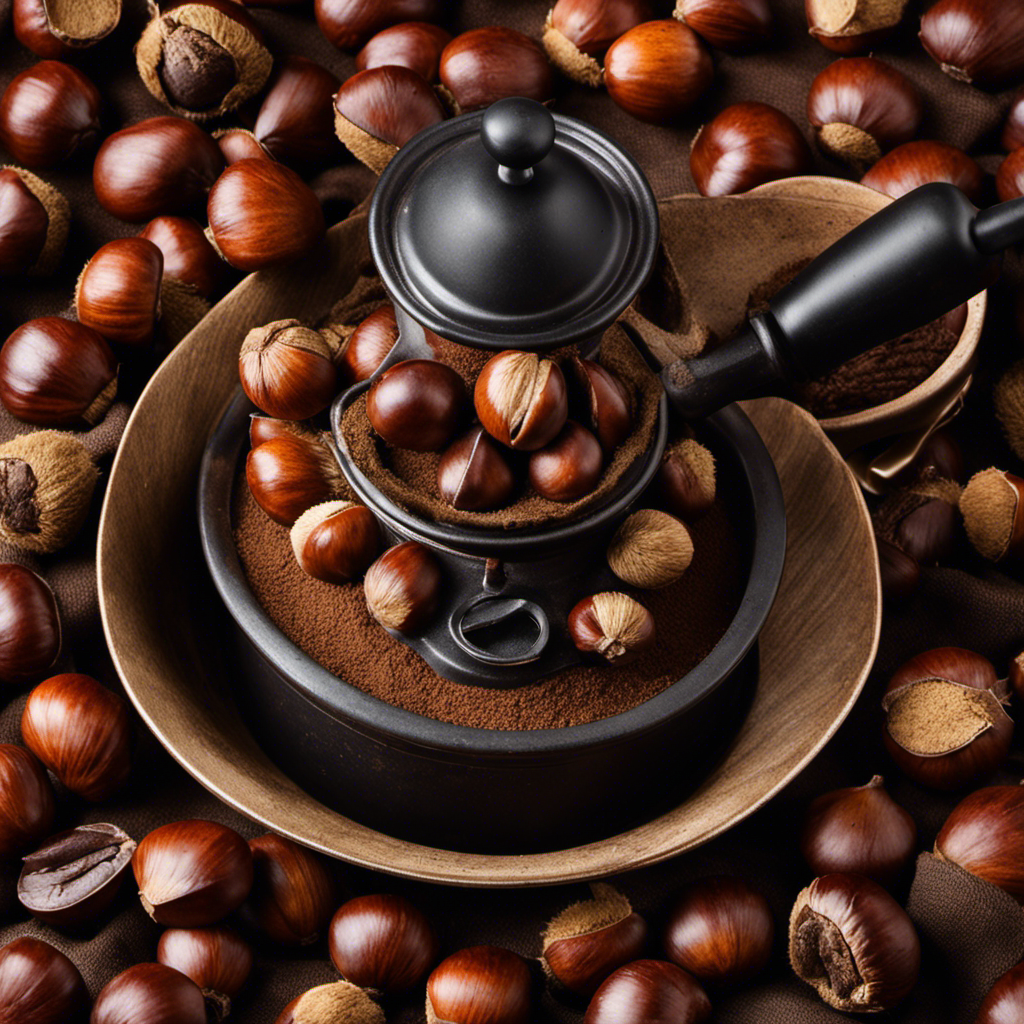
Envision rising to the scent of coffee just brewed, its soothing aroma enveloping the atmosphere like a gentle hug.
But what if I told you that you could achieve that same cozy feeling without actually using coffee beans?
In this article, I will guide you through the process of making a delightful coffee substitute from chestnuts.
Get ready to embark on a journey of flavors and discover a new way to start your day.
Key Takeaways
- Fresh and firm chestnuts are ideal for a coffee substitute.
- Roasting enhances flavor and unlocks health benefits.
- Grind roasted chestnuts into a fine powder for brewing.
- Enhance the flavor of chestnut coffee with cinnamon, honey, vanilla extract, or nutmeg.
Selecting the Right Chestnuts for Your Coffee Substitute
When selecting the right chestnuts for your coffee substitute, make sure they are fresh and firm. Choosing alternative coffee options can be a great way to explore new flavors and enjoy the health benefits of chestnut coffee.
Chestnuts are naturally low in caffeine and rich in antioxidants, making them a healthier choice compared to traditional coffee. To ensure you get the best quality chestnuts, look for ones that are smooth, shiny, and have no visible cracks or holes. Avoid chestnuts that feel soft or have a musty smell, as these might indicate spoilage.
It’s also important to check the weight of the chestnuts – heavier ones are usually fresher. So, be selective when picking your chestnuts for a delicious and nutritious coffee substitute.
Roasting and Preparing Chestnuts for Brewing
To roast and prepare chestnuts for brewing, you’ll need to first remove the outer shell and then roast them until they are golden brown. Here are some roasting techniques and health benefits to consider:
-
Roasting Techniques:
- Preheat your oven to 400°F (200°C).
- Cut an ‘X’ on the flat side of each chestnut to prevent them from exploding.
- Place the chestnuts on a baking sheet and roast for about 20-25 minutes, shaking the pan occasionally.
- Remove from the oven and let them cool before peeling.
-
Health Benefits:
- Chestnuts are low in fat and contain no cholesterol.
- They are a good source of fiber, vitamins, and minerals.
- They are rich in antioxidants, which help protect against cell damage.
- Chestnuts also contain high levels of vitamin C, promoting a healthy immune system.
Roasting chestnuts not only enhances their flavor but also unlocks their numerous health benefits. So go ahead and enjoy a cup of chestnut coffee substitute!
Grinding and Brewing Chestnuts for the Perfect Coffee Substitute
Grinding and brewing chestnuts creates a delicious and healthy alternative to traditional coffee. As I mentioned in the previous section, roasting and preparing chestnuts is the first step in this process. Now, let’s move on to grinding and brewing these flavorful nuts.
To make chestnut coffee, you will need to grind chestnuts into a fine powder. This can be done using a coffee grinder or a food processor. The resulting chestnut flour can then be used to brew a rich and aromatic cup of coffee.
Here is a simple step-by-step guide to grinding and brewing chestnuts for the perfect coffee substitute:
- Roast and peel the chestnuts as explained in the previous section.
- Grind the roasted chestnuts into a fine powder using a coffee grinder or a food processor.
- Brew the chestnut flour just like you would brew regular coffee. Use 1-2 tablespoons of chestnut flour for every cup of water.
Now that you know how to make chestnut coffee, let’s discuss the health benefits of this delightful alternative.
Enhancing the Flavor of Your Chestnut Coffee Substitute
If you want to enhance the flavor of your chestnut coffee, try adding a dash of cinnamon or a drizzle of honey. These simple additions can take your chestnut coffee to the next level, adding depth and sweetness to each sip.
But why stop there? As you explore alternative uses for chestnut flour and experiment with different roasting techniques, you’ll discover even more ways to elevate your coffee substitute experience. Here are four ideas to get you started:
- Infuse your chestnut coffee with vanilla extract for a creamy and aromatic twist.
- Sprinkle a pinch of nutmeg on top to add a warm and comforting flavor.
- Add a splash of almond milk or coconut milk for a creamy and dairy-free alternative.
- Experiment with different sweeteners like maple syrup or agave nectar to customize the taste to your liking.
Storing and Enjoying Your Homemade Chestnut Coffee Substitute
When storing your homemade chestnut coffee, remember to seal it in an airtight container to maintain its freshness and flavor. Storing your chestnut coffee properly is essential to preserve its aroma and taste.
Chestnut coffee can absorb odors from its surroundings, so it’s important to store it away from strong-smelling items. I recommend using a glass jar with a tight-fitting lid or a vacuum-sealed bag to keep your chestnut coffee fresh for longer.
Additionally, store it in a cool, dark place, away from direct sunlight and heat sources. This will help prevent the coffee from losing its flavor and becoming stale.
Frequently Asked Questions
Can I Use Any Type of Chestnuts to Make the Coffee Substitute?
Yes, you can use different varieties of chestnuts to make the coffee substitute. Some popular choices include European chestnuts, Chinese chestnuts, and Japanese chestnuts. When roasting them for brewing, remember to follow these tips and tricks.
How Long Should I Roast the Chestnuts for Brewing?
Roasting time for chestnuts depends on the desired flavor. For a rich and nutty taste in the brewing process, roast them for about 20-30 minutes at 400°F. Adjust the time to suit your preference.
Can I Use a Regular Coffee Grinder to Grind the Chestnuts?
Using a regular coffee grinder for chestnuts is possible, but it may not produce the desired consistency. To enhance the taste of chestnut coffee, consider adding a pinch of cinnamon or nutmeg.
Are There Any Natural Flavorings I Can Add to Enhance the Taste of the Chestnut Coffee Substitute?
I can enhance the taste of the chestnut coffee substitute by adding natural sweeteners like honey or maple syrup. As for alternative brewing methods, I could try steeping the ground chestnuts in hot water for a stronger flavor.
How Long Can I Store the Homemade Chestnut Coffee Substitute Before It Goes Bad?
The homemade chestnut coffee substitute can be stored for up to six months if properly stored. To maximize shelf life, store it in an airtight container in a cool, dry place away from sunlight or moisture.
Conclusion
As I sit here, sipping on a warm cup of my homemade chestnut coffee substitute, I can’t help but feel a sense of satisfaction and connection to nature.
The process of selecting the perfect chestnuts, roasting them to perfection, and brewing them into a rich and flavorful beverage has not only provided me with a delicious alternative to traditional coffee, but has also reminded me of the importance of simplicity and creativity in our daily lives.
Just like the chestnut, sometimes all we need is a little bit of ingenuity and resourcefulness to create something truly remarkable.
So, next time you’re looking for a unique and tasty coffee substitute, give chestnuts a try – you might just discover a whole new world of flavor and inspiration.
Noah, the Editor-in-Chief at Cappuccino Oracle, plays a pivotal role in shaping the voice and vision of our renowned platform. With an unwavering passion for coffee, coffee alternatives, and tea, Noah leads Cappuccino Oracle towards new horizons in the realm of coffee journalism.
Beyond his professional responsibilities, Noah serves as a mentor and guiding force for his team. His dedication to journalistic excellence and genuine love for coffee, coffee alternatives, and tea continue to inspire and motivate the Cappuccino Oracle family. In the ever-evolving world of these beverages, Noah’s leadership ensures that our platform remains at the forefront, delivering enlightening and enjoyable content to our readers worldwide.
Mushroom Coffee
Discover the Magic of Mushroom Coffee: Ryze Organic Unveiled
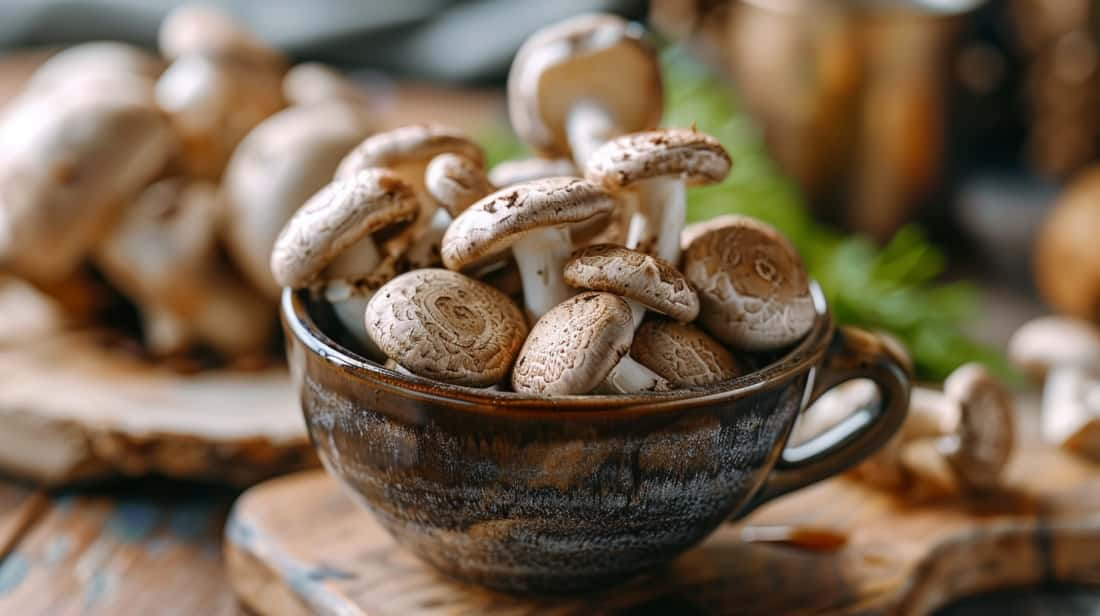
Welcome to the fascinating world of mushroom coffee, where ancient wisdom meets modern wellness. In this comprehensive guide, we’ll explore the revolutionary Ryze Organic mushroom coffee, a blend that’s taking the functional beverage market by storm. Whether you’re a coffee aficionado or a health enthusiast, prepare to be amazed by the unique benefits and flavors of this innovative brew.
What is Mushroom Coffee?
Mushroom coffee is a cutting-edge beverage that combines the rich, robust flavors of coffee with the powerful health benefits of medicinal mushrooms. This unique fusion creates a drink that not only energizes but also supports overall well-being. Learn more about the health benefits of functional beverages.
The Science Behind Mushroom Coffee
The magic of mushroom coffee lies in its synergistic blend of coffee and medicinal mushrooms. These fungi have been used for centuries in traditional medicine and are now making a comeback in the wellness world. Ryze Organic harnesses the power of mushrooms like Lion’s Mane, Cordyceps, and Reishi, each offering unique health benefits.
Key Benefits of Medicinal Mushrooms in Ryze Organic
- Cognitive Function Support: Lion’s Mane mushroom stimulates nerve cell growth and improves cognitive function in patients with mild cognitive impairment.
- Immune System Boost: Reishi mushroom enhances the body’s natural defense against infection and disease, increasing the production of white blood cells.
- Stress Reduction: Cordyceps mushroom reduces symptoms of anxiety and depression in patients with chronic stress.
- Improved Energy and Focus: Cordyceps supplementation improves exercise performance and reduces fatigue, while Lion’s Mane increases the production of neurotransmitters involved in regulating energy and focus.
Curious about the science behind these incredible benefits? Dive deeper into Coffee Lovers 101 coffee guides to learn more.
Ryze Organic: A Closer Look
Ryze Organic is at the forefront of the mushroom coffee revolution. This innovative company is committed to delivering high-quality, organic products that support both health and sustainable practices.

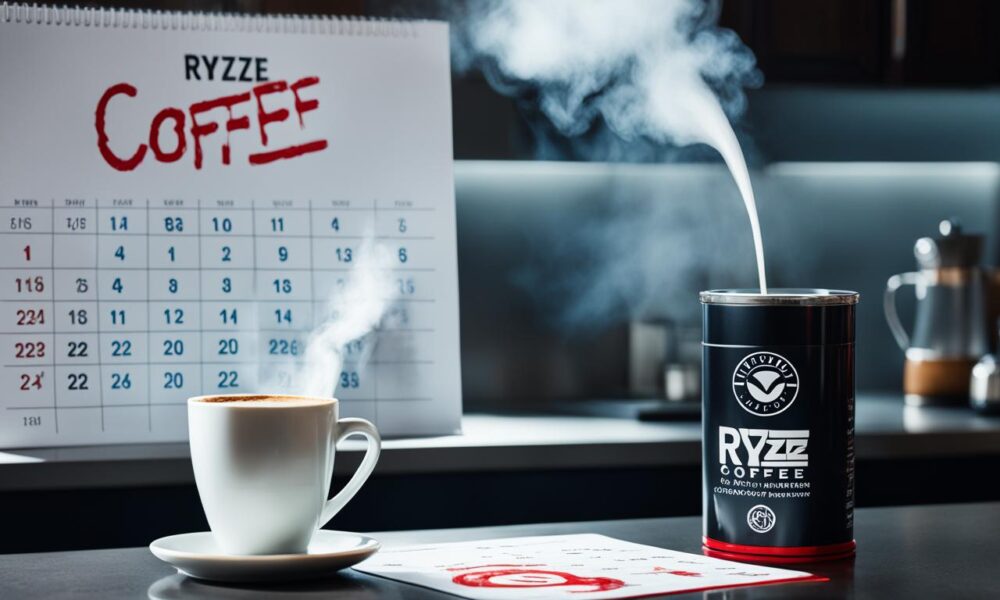
Ryze Organic coffee is designed with your health in mind. Each serving contains only 1g of total carbohydrates and 0g of protein, making it an excellent choice for those following intermittent fasting or low-carb diets. With 48mg of caffeine per cup, it provides a gentle energy boost without the jitters often associated with traditional coffee.
Want to know more about Ryze Organic’s product range and features? Check out Coffee Lovers 101 detailed Ryze Coffee guide.
Brewing and Enjoying Mushroom Coffee
Brewing Ryze Organic mushroom coffee is a breeze, and the result is a smooth, flavorful cup that might just become your new favorite morning ritual. Here are some tips to get you started:
Recommended Brewing Methods for Ryze Organic
For more brewing techniques and tips, be sure to explore Coffee Lovers 101 comprehensive brewing guides.
Health and Wellness Aspects of Ryze Organic
Ryze Organic mushroom coffee is more than just a tasty beverage – it’s a powerhouse of health benefits. Here’s what you can expect:
- Enhanced cognitive function and focus
- Sustained energy without crashes
- Improved immune system support
- Reduced acidity compared to regular coffee
- Gentle on the stomach
Interested in learning more about how coffee can support your health journey? Dive into Coffee Lovers 101 health and wellness section for in-depth articles and tips.
Is Mushroom Coffee Right for You?
If you’re looking to elevate your coffee experience while supporting your health goals, Ryze Organic mushroom coffee might be the perfect choice. It offers a unique blend of flavor and function that can seamlessly integrate into your daily routine.
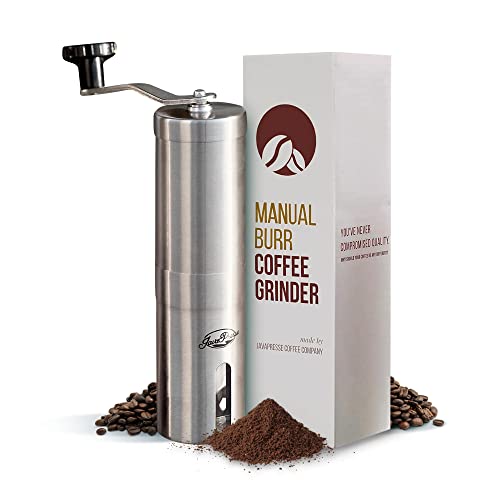
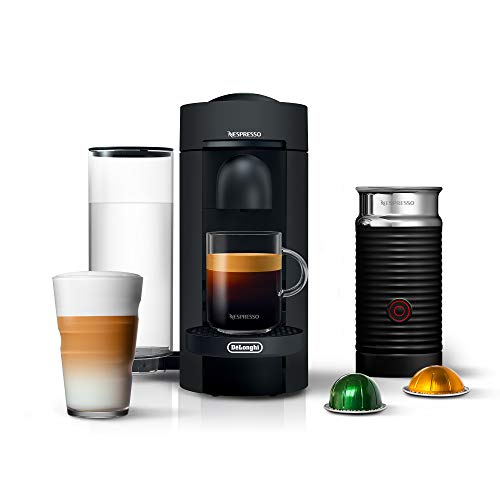
Ready to embark on your mushroom coffee journey? Why not start by trying some creative recipes? Coffee Lovers 101 coffee recipes section is full of inspiring ideas to help you make the most of your Ryze Organic blend.
Conclusion: Embrace the Mushroom Coffee Revolution
Ryze Organic mushroom coffee represents a new frontier in the world of functional beverages. By combining the beloved ritual of coffee drinking with the powerful benefits of medicinal mushrooms, it offers a unique way to support your health and wellness goals without sacrificing flavor or enjoyment.
Whether you’re looking to boost your productivity, support your immune system, or simply enjoy a delicious cup of coffee with added benefits, Ryze Organic has something to offer. So why not give it a try? Your taste buds – and your body – might just thank you.
Remember, the journey to better health and wellness is ongoing. Keep exploring, keep learning, and most importantly, keep enjoying every sip of your coffee adventure!
In the vast and diverse world of coffee, coffee alternatives, and tea, Olivia has found her calling. As an author and a dedicated coffee and tea aficionado, her work for Cappuccino Oracle reflects her profound love and understanding of the intricate complexities found within these beverages. Olivia’s passion for the subject serves as both a catalyst for her creativity and a connection point with her audience.
Olivia’s appreciation for coffee, coffee alternatives, and tea blossomed at an early age. She discovered that these beverages invigorated her senses and stimulated her creative spirit. From the nuanced flavors of single-origin roasts to the captivating narratives intertwined with coffee, coffee alternatives, and tea trade and culture, Olivia found an unlimited source of inspiration in her daily cup.
Her love for these beverages and her talent for storytelling eventually converged at Cappuccino Oracle. As an author, Olivia’s mission is to illuminate the intricate tapestry that makes up the world of coffee, coffee alternatives, and tea. Her articles span a diverse range of topics, encompassing everything from the unique flavors of different brews to the sociocultural history intertwined with their cultivation and consumption.
Turmeric Tea
How Long Does Tea Need to Steep Kombucha

As a tea lover, I frequently contemplate the ideal steeping time for my kombucha to achieve the perfect flavor. The amount of time the tea leaves steep is essential for getting the desired taste and health benefits.
In this article, we will explore the importance of steeping time, factors that affect it, and recommended times for different tea types.
Join me as we dive into the world of tea steeping and discover the secrets to achieving the perfect cup of kombucha.
Key Takeaways
- Steeping time impacts flavor and potency of kombucha
- Proper steeping time ensures well-balanced and delicious kombucha
- Different teas have recommended steeping times based on brewing temperature
- Experimenting with steeping time allows for a personalized tea experience
The Importance of Steeping Time
You’ll want to pay attention to the steeping time because it directly impacts the flavor and potency of your kombucha. Steeping techniques and the steeping temperature play a crucial role in extracting the desired flavors and medicinal properties from the tea leaves.
Different types of tea require different steeping times to achieve the perfect balance. For example, black tea typically needs to steep for 3-5 minutes, while green tea only requires 1-3 minutes. The steeping temperature also varies, with black teas needing boiling water and green teas requiring cooler temperatures around 160-180°F.
Proper steeping time ensures that the flavors are not over or under-extracted, resulting in a well-balanced and delicious kombucha. Understanding the importance of steeping time is essential in creating the perfect brew.
Now that we have discussed the significance of steeping time, let’s explore the various factors that can affect the length of time needed to steep kombucha.
Factors Affecting Steeping Time
Factors like water temperature, tea type, and tea-to-water ratio can impact the steeping time for making kombucha. The brewing temperature plays a crucial role in determining how long the tea should steep. Different types of tea require different temperatures to release their flavors and nutrients effectively. For example, black tea is best steeped at around 205°F (96°C), while green tea is usually steeped at a lower temperature of 175°F (79°C). Additionally, the freshness of the tea leaves can also affect the steeping time. Fresher tea leaves tend to steep faster and produce a more vibrant flavor. To help you understand the relationship between these factors, here’s a table that outlines the recommended steeping times for different types of tea based on brewing temperature and tea freshness:
| Tea Type | Brewing Temperature (°F) | Recommended Steeping Time (minutes) |
|---|---|---|
| Black Tea | 205 | 3-5 |
| Green Tea | 175 | 2-3 |
| Oolong Tea | 195 | 4-6 |
| Herbal Tea | 212 | 5-7 |
Recommended Steeping Times for Different Tea Types
Take note of the recommended steeping times for various types of tea based on the table provided, as this will help you achieve the desired flavor and balance in your brew.
Steeping time is crucial in extracting the right amount of flavor from the tea leaves. For delicate teas like green and white teas, a shorter steeping time of around 2-3 minutes at an optimal brewing temperature of 175°F to 185°F is recommended.
Black teas, on the other hand, require a longer steeping time of 3-5 minutes at a higher temperature of 195°F to 205°F.
Herbal teas generally need to steep for 5-7 minutes at a boiling temperature of 212°F.
Remember, using loose leaf tea instead of tea bags enhances the flavor and benefits of the tea, as the leaves have more room to expand and infuse their flavors.
Experimenting With Steeping Time
For a unique and personalized tea experience, try varying the steeping time and discover new flavors and aromas in your brew. Experimenting with steeping time allows you to tailor your tea to your taste preferences and explore the full range of flavors that different teas have to offer. By adjusting the steeping time, you can enhance or tone down certain characteristics of the tea, such as its bitterness or strength. To help you get started, here is a table showcasing the recommended steeping times for different tea types:
| Tea Type | Steeping Time |
|---|---|
| Green | 1-3 minutes |
| Black | 3-5 minutes |
| Oolong | 3-5 minutes |
| White | 2-3 minutes |
| Herbal | 5-7 minutes |
Tips for Achieving the Perfect Steep
To achieve the perfect steep, try experimenting with different water temperatures and steeping times to find the ideal combination for your taste preferences and desired flavor profile. Steeping techniques play a crucial role in extracting the flavors and aromas from tea leaves.
Here are some tips to help you achieve the optimal flavor profiles:
-
Water temperature:
-
Green and white teas: Steep at lower temperatures (around 160-175°F) to preserve delicate flavors.
-
Black and herbal teas: Use hotter water (around 200-212°F) to extract bold flavors.
-
Steeping time:
-
Lighter teas: Steep for 2-3 minutes to avoid bitterness.
-
Full-bodied teas: Steep for 4-5 minutes for a stronger flavor.
-
Experimentation:
-
Adjust steeping time and temperature to find your preferred balance of flavors.
Remember, the perfect steep is subjective, so don’t be afraid to experiment and find what works best for you.
Happy steeping!
Conclusion
In conclusion, steeping time plays a crucial role in the flavor and quality of kombucha. The length of time tea needs to steep depends on various factors such as the type of tea and personal preference. However, it is generally recommended to steep black tea for 3-5 minutes, green tea for 2-3 minutes, and herbal teas for 5-7 minutes.
Interestingly, studies have shown that steeping black tea for longer periods, up to 10 minutes, can increase its antioxidant content by 20%. So, don’t be afraid to experiment with different steeping times to find your perfect cup of kombucha.
Arf, an author and an innovative enthusiast of coffee, coffee alternatives, and tea, plays a crucial role as a contributor to the esteemed Cappuccino Oracle platform. Renowned for his curiosity and passion for these captivating beverages, Arf has carved out a unique space for himself in the world of exploration and writing. He realized that coffee, coffee alternatives, and tea are not mere drinks to keep one awake, but universes of flavors and stories waiting to be explored.
Arf’s articles for Cappuccino Oracle blend meticulous research with personal experiences, providing readers with an in-depth understanding of various types of coffee, coffee alternatives, and tea, along with their unique characteristics, cultures, and histories. His honest reviews and engaging narratives guide readers on their own journeys, helping them discover their preferences and find their perfect brew.
Turmeric Tea
Where Can Kombucha Tea Be Purchase

Are you aware that kombucha tea, a fermented drink recognized for its probiotic advantages, is gaining more popularity?
In fact, sales of kombucha have grown by an impressive 25% each year!
If you’re wondering where to get your hands on this health elixir, look no further. I’ll guide you through the various options available, from local health food stores and online retailers to farmers markets and specialty tea shops.
You can even brew your own at home!
Let’s explore the exciting world of kombucha tea together.
Key Takeaways
- Kombucha tea can be purchased at local health food stores, online retailers, farmers markets, and specialty tea shops.
- Factors to consider when choosing a kombucha brand include high-quality ingredients, wide flavor range, and sugar content.
- Online retailers offer a variety of options for purchasing kombucha tea, with popular brands including GT’s Kombucha, Health-Ade, Kevita, and Brew Dr.
- Farmers markets and specialty tea shops offer unique flavors of kombucha, with the benefits of freshness, quality, and supporting local farmers and artisans.
Local Health Food Stores
You can find kombucha tea at local health food stores. Kombucha has gained popularity in recent years due to its potential benefits for gut health.
This fermented tea is rich in probiotics, which are beneficial bacteria that can help improve digestion and promote a healthy gut microbiome. The probiotics in kombucha tea can help restore the balance of bacteria in the gut, which is important for overall digestive health.
When choosing a kombucha brand, it’s important to consider your needs and preferences. Look for a brand that uses high-quality ingredients and has a wide range of flavors to choose from. It’s also a good idea to check the sugar content and ensure that the brand uses organic ingredients if that is important to you.
Overall, local health food stores are a great place to find a variety of kombucha brands that can support your gut health.
Online Retailers
Online retailers offer a wide variety of options for purchasing kombucha tea. With just a few clicks, you can have your favorite brand delivered right to your doorstep. When it comes to choosing the best kombucha tea brand, online retailers provide a wealth of information and customer reviews to help guide your decision. To make it easier for you, here is a table comparing some popular kombucha tea brands:
| Brand | Flavor Options | Organic Options | Price Range |
|---|---|---|---|
| GT’s Kombucha | Over 20 flavors | Yes | $3-$5 per bottle |
| Health-Ade | Wide variety | Yes | $4-$6 per bottle |
| Kevita | Assorted flavors | Yes | $3-$5 per bottle |
| Brew Dr. | Unique blends | Yes | $4-$6 per bottle |
When considering which brand to choose, it’s important to look for the benefits of drinking kombucha tea. These include improved digestion, boosted immune system, and increased energy levels. Once you’ve made your decision, it’s time to explore another great option for purchasing kombucha tea: farmers markets.
Farmers Markets
When exploring farmers markets, you’ll find a variety of local vendors offering a diverse selection of kombucha flavors. Here are some benefits of buying kombucha tea from local farmers markets and tips on how to choose the best one:
- Freshness: Kombucha tea at farmers markets is often made in small batches, ensuring its freshness and quality.
- Supporting local businesses: By purchasing kombucha from farmers markets, you are supporting local farmers and artisans.
- Unique flavors: Farmers markets offer a wide range of unique and creative kombucha flavors that you may not find elsewhere.
- Personalized experience: Interacting with local vendors allows you to learn about their brewing process, ingredients, and even receive recommendations tailored to your taste preferences.
By buying kombucha tea from farmers markets, you not only get to enjoy its numerous health benefits but also contribute to the growth of your local community.
Now, let’s explore where else you can find this delightful beverage – specialty tea shops.
Specialty Tea Shops
Specialty tea shops offer a wide range of unique and flavorful beverages that can satisfy any tea lover’s cravings. One popular option found in these shops is kombucha tea.
This fermented tea is known for its numerous health benefits. Kombucha tea is rich in probiotics, which can support a healthy gut and boost the immune system. It is also a great source of antioxidants, which can help protect the body against harmful free radicals.
When it comes to flavors, specialty tea shops offer a variety of options. From classic flavors like ginger and lemon to more adventurous ones like lavender and hibiscus, there is something for everyone. Some shops even have seasonal flavors that change throughout the year, allowing tea enthusiasts to try something new with each visit.
Brew Your Own at Home
Try brewing your own kombucha at home to have complete control over the flavors and ingredients in your favorite beverage. It’s a fun and rewarding process that allows you to experiment with different flavors and create a personalized brew.
Here’s what you’ll need to get started:
-
SCOBY (Symbiotic Culture of Bacteria and Yeast): This is the living organism responsible for fermenting the tea and creating the fizzy goodness of kombucha.
-
Tea: Choose black, green, or herbal tea to steep and infuse flavor into your kombucha.
-
Sugar: The SCOBY feeds on sugar, so you’ll need it to provide food for fermentation.
-
Brewing vessel: Use a glass jar or a ceramic crock to ferment your kombucha. Make sure it’s clean and sanitized.
Conclusion
In conclusion, kombucha tea can be purchased in various places, making it easily accessible to anyone interested in trying this healthy beverage. Whether you prefer to visit your local health food store, browse online retailers, explore farmers markets, or check out specialty tea shops, there are plenty of options available.
Interestingly, according to a recent survey, the sales of kombucha tea have been steadily increasing over the past decade, indicating a growing interest in this probiotic-rich drink. This statistic highlights the positive impact kombucha tea is having on people’s health and wellness, making it a worthwhile addition to one’s diet.
Noah, the Editor-in-Chief at Cappuccino Oracle, plays a pivotal role in shaping the voice and vision of our renowned platform. With an unwavering passion for coffee, coffee alternatives, and tea, Noah leads Cappuccino Oracle towards new horizons in the realm of coffee journalism.
Beyond his professional responsibilities, Noah serves as a mentor and guiding force for his team. His dedication to journalistic excellence and genuine love for coffee, coffee alternatives, and tea continue to inspire and motivate the Cappuccino Oracle family. In the ever-evolving world of these beverages, Noah’s leadership ensures that our platform remains at the forefront, delivering enlightening and enjoyable content to our readers worldwide.
-

 Americano4 weeks ago
Americano4 weeks agoHow to Make Americano With Moka Pot
-

 Americano2 weeks ago
Americano2 weeks agoHow to Make Korean Iced Americano
-

 Americano4 weeks ago
Americano4 weeks agoHow to Make Iced Americano With Instant Coffee
-

 Americano4 weeks ago
Americano4 weeks agoHow to Make Americano With Bialetti
-

 Americano4 weeks ago
Americano4 weeks agoHow to Make Dutch Bros Americano
-

 Americano6 days ago
Americano6 days agoHow to Make an Iced Americano With Nespresso
-

 Americano2 weeks ago
Americano2 weeks agoHow Many Shots of Espresso for 16 Oz Americano
-

 Americano4 weeks ago
Americano4 weeks agoHow to Make a Hazelnut Americano
















